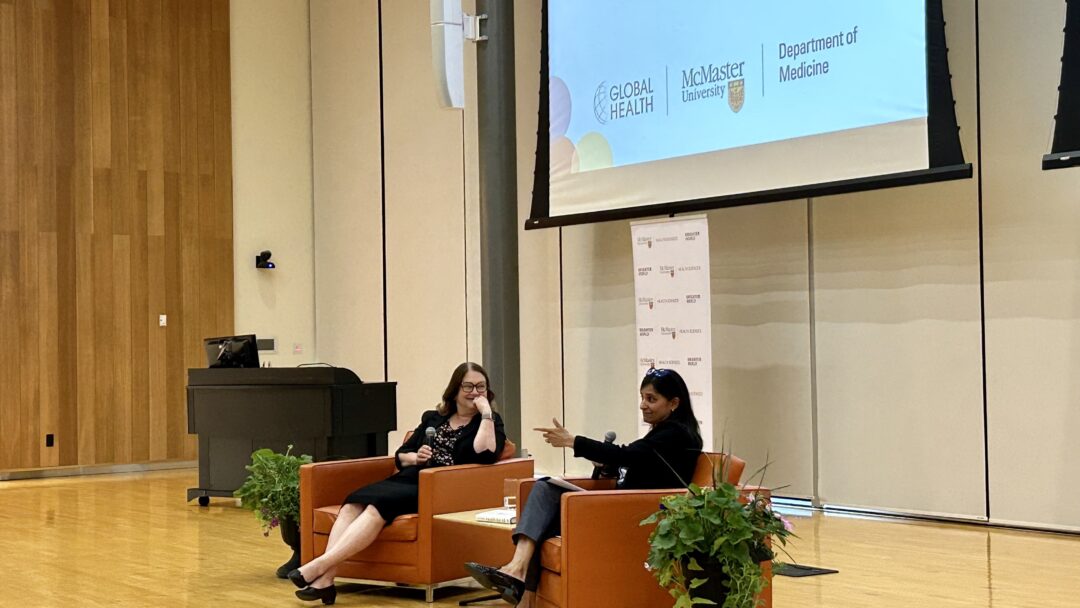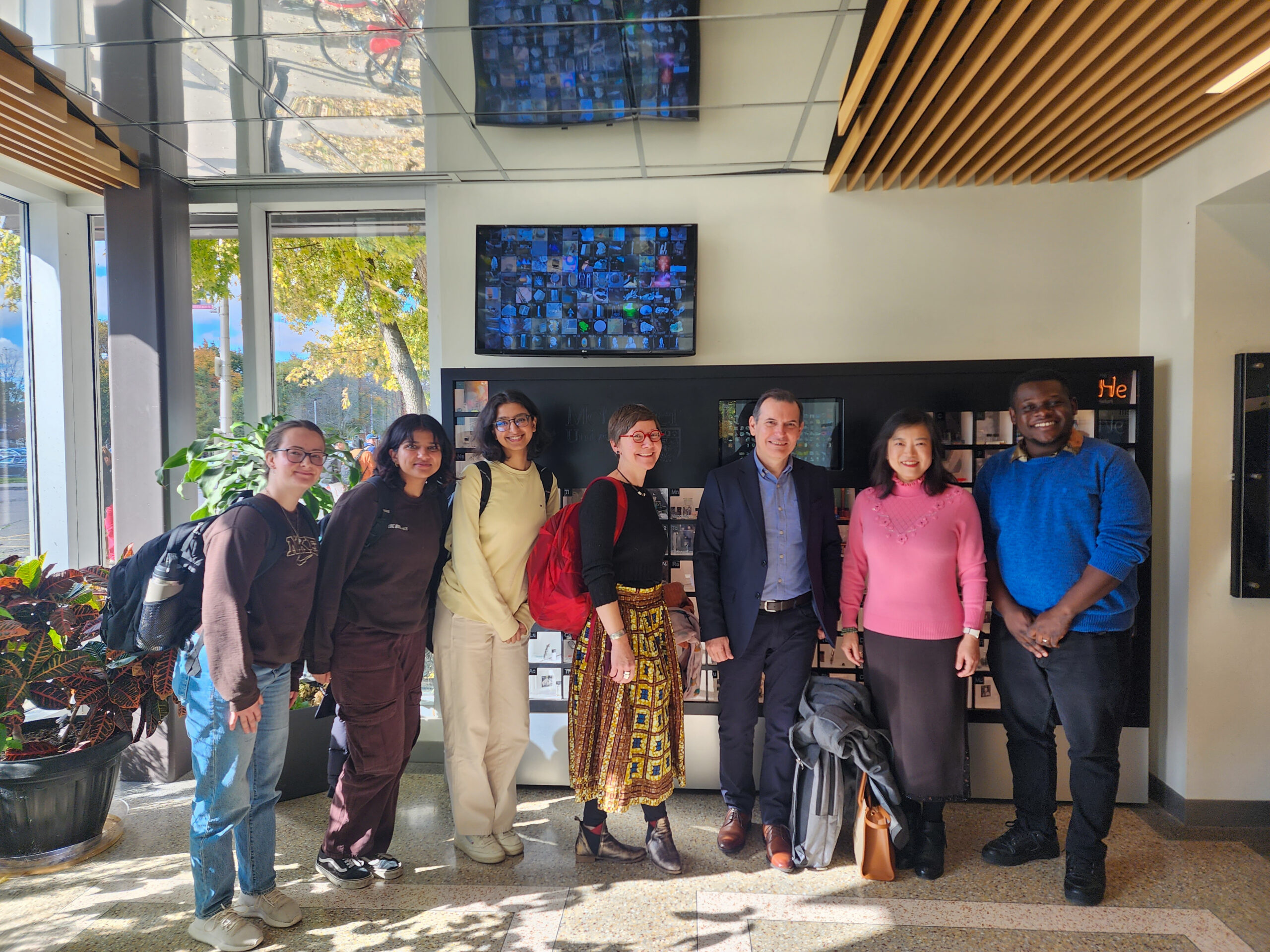What Can Crumbling Cottages & Public Schools Teach Us About Health Systems?

Drs. Jane Philpott & Sonia Anand sit down for a Fireside Chat. The following Blog Post is written by Global Health PhD Student, Aoife Cummins.
“The crisis that we see in primary care is enormous, and if we don’t fix it, we are going to go down a very damaging road” stated Dr. Jane Philpott during a recent fireside chat with Global Health’s Associate Vice President, Dr. Sonia Anand. Drawing on insights from her new book, ‘Health for All: A Doctor’s Prescription for a Healthier Canada’, Philpott discussed health inequity within the Canadian context and demonstrated the urgent need for health system reform. In reflecting on her diverse professional journey from healthcare to government to academia, Philpott urged attendees to remain hopeful, offering holistic and interdisciplinary solutions to Canada’s greatest health challenges.
During the discussion, Philpott argued that the first step towards health equity lies in improving primary care services. According to a recent national survey, more than one in five Canadians do not have reliable access to a family doctor or nurse practitioner. This shortage leaves Canadians vulnerable and places unsustainable burdens on emergency departments nationwide. In response to this crisis, Philpott proposes a model which resembles Canada’s public education system. She suggests implementing regionally designated, interdisciplinary primary care teams. This model would help guarantee Canadians universal access to local primary care, similarly to how every Canadian child is guaranteed access to a public school within their residential districts. Furthermore, a reconceptualization of “what is deemed medically necessary care” is necessary for this innovative approach to primary care. As Philpott explains, our current understanding of essential care is “narrowly defined” as services provided either by a doctor or within hospital walls. By broadening legislative interpretations of necessary health care, we can more effectively integrate diverse professional health services. This can, in turn, generate a more coordinated and person-centred approach to primary care.
As Philpott and Anand’s discussion evolved to cover a variety of issues from medical school infrastructure to the opioid crisis, the dire need for a radical reset to Canadian health systems was highlighted. To help illustrate this point, Philpott drew on the analogy of her family cottage. The cottage had fallen into disrepair after years of patchwork jobs and temporary tweaks. It eventually became apparent that this make-shift approach was not only ineffective but unsustainable. Hence, the hard decision to tear down the beloved cottage was made, leaving only the original fireplace to center the rebuild. “This is exactly what Canadian healthcare needs” exclaimed Philpott. It is time to acknowledge that current strategies are unable to address systemic health inequity effectively and sustainably. Hence, to move towards a healthier Canada, an ambitious strategy centred on the medicare principles pioneered by Tommy Douglas and Monique Bégin, is needed – and it is needed now.
Anand brought the fireside chat to a conclusion by asking Philpott about her plans for the future. Philpott explained that she wants to dedicate the remainder of her career dedicated to transforming health systems. “I think we are in a precipice moment in healthcare right now,” said Philpott, re-iterating her call for immediate and decisive action. In other words, perhaps it is finally time to pick up the shovels and get this re-model started.
Reference:
“OurCare Data Explorer”, OurCare, n.d., https://data.ourcare.ca/all-questions. Accessed June 6, 2023.
Student BlogRelated News
News Listing

November 12, 2024

November 5, 2024

Pollution, Power, and Protest: Unpacking Environmental Racism from Africville to Wet’suwet’en
Student Blog
October 10, 2024
